Finding out your spouse has cheated is devastating. But what stings even more is when the people who should support you the most take the other side.
That’s the reality this Redditor faced. After discovering her husband’s affair with a coworker, she chose to end the marriage. Yet when she turned to her father for support, he dismissed her pain and blamed her for not holding the marriage together.
Feeling completely betrayed, she went no contact and hasn’t spoken to him since. Now she wonders: was she justified in cutting him off? Read the full story below and decide for yourself.
After finding out her husband cheated, the woman told her father she was getting a divorce

Image credits: LightFieldStudios / Envato (not the actual photo)
But instead of supporting her, he turned the blame on her for ruining the marriage

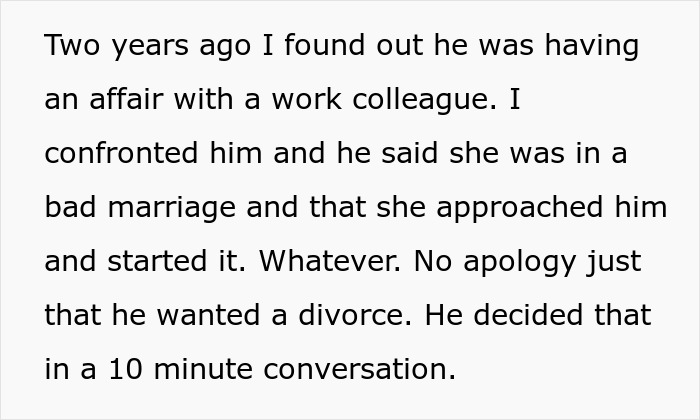
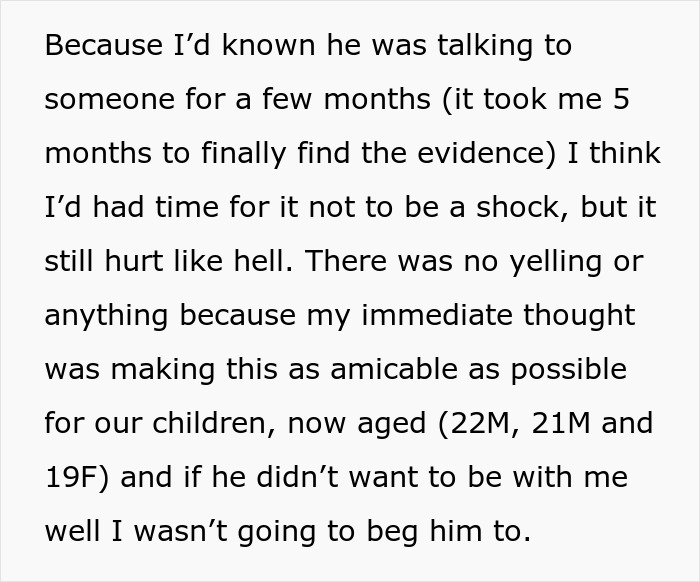

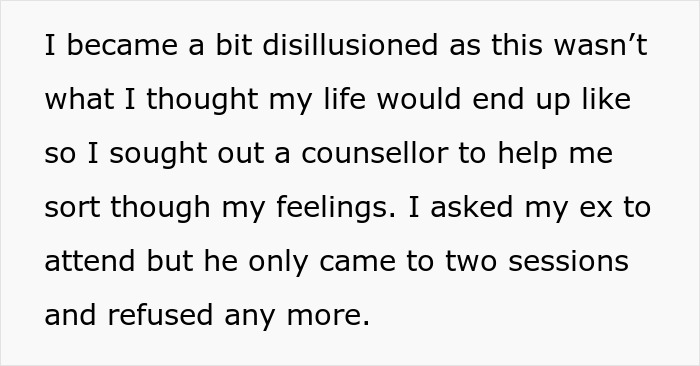
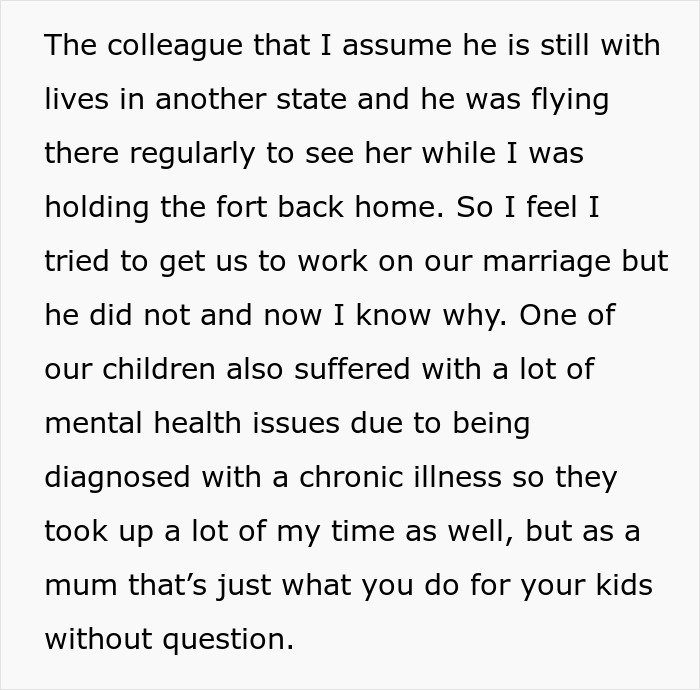
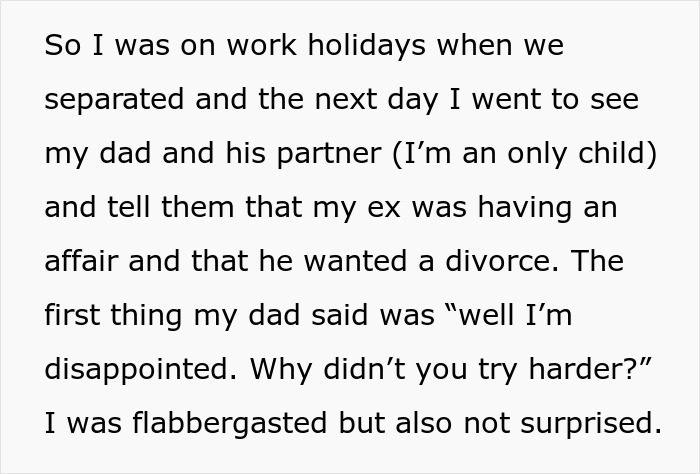
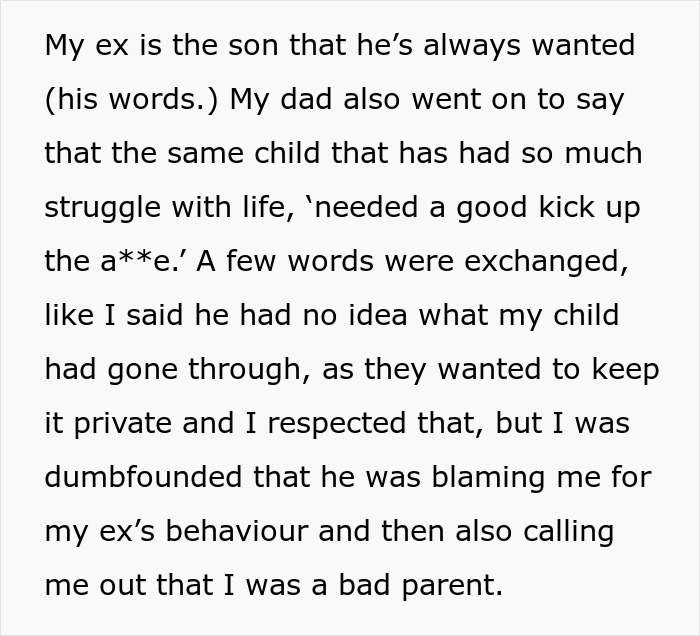

Image credits: Angelov1 / Envato (not the actual photo)
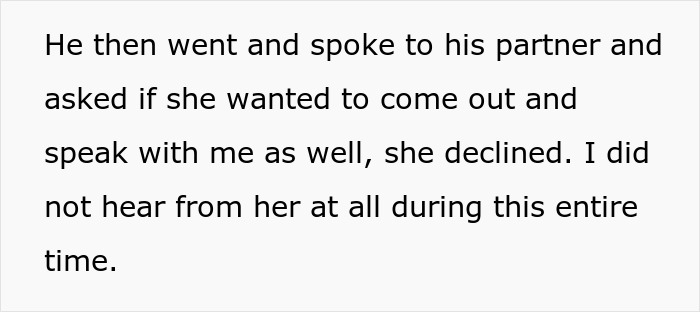
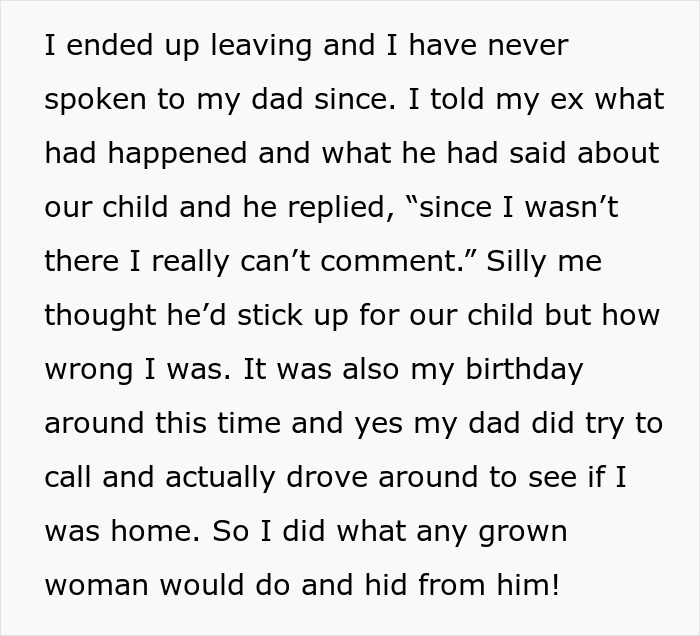
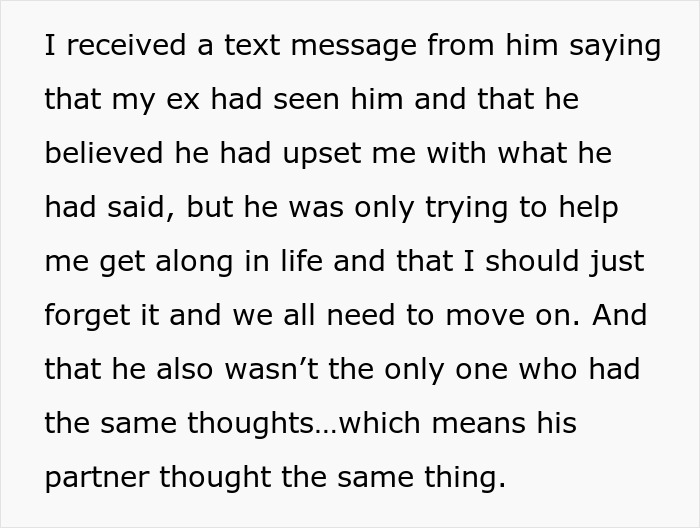
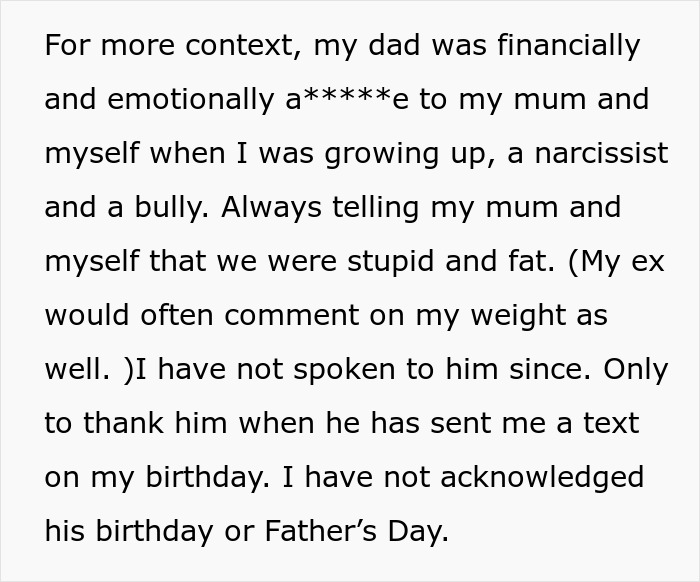

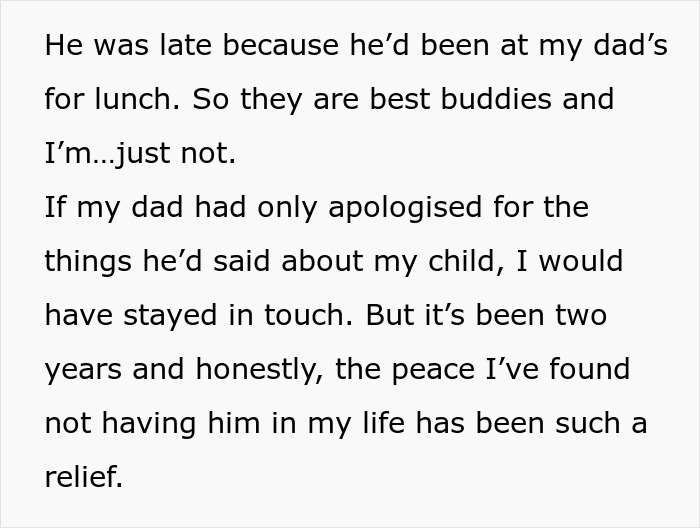

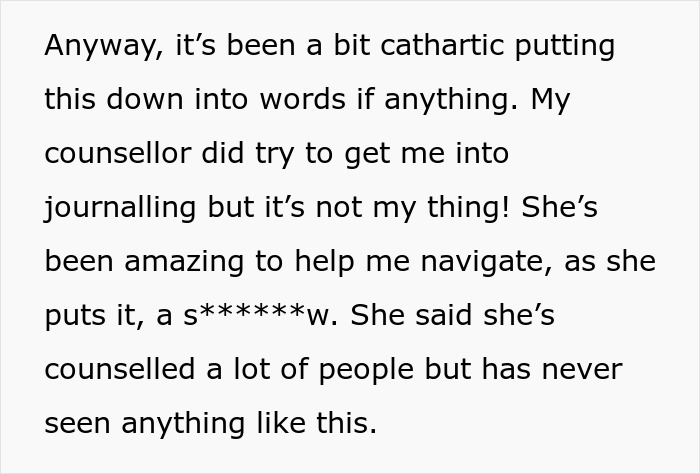
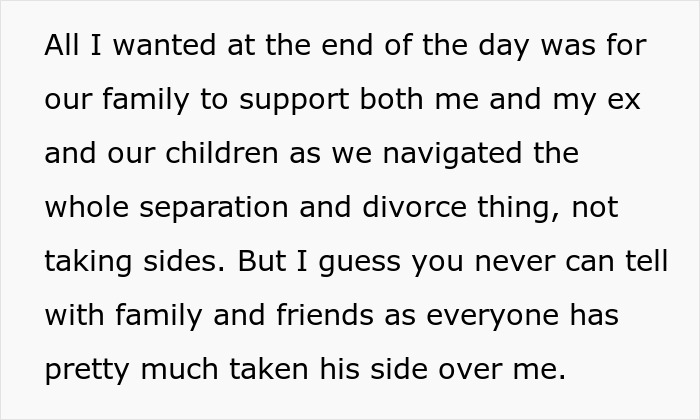

Image credits: monkeybusiness / Envato (not the actual photo)

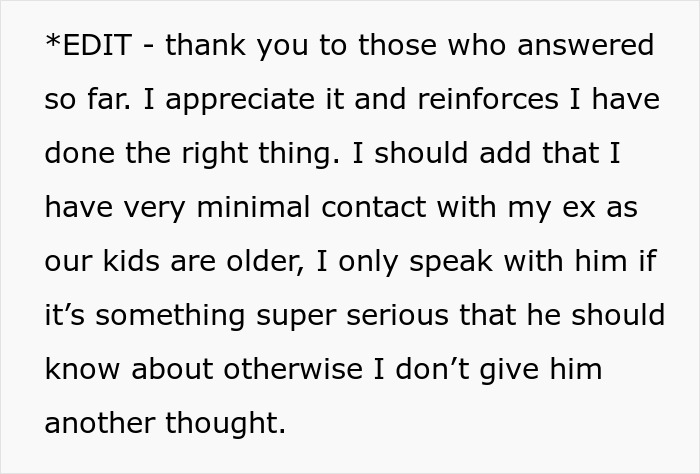

Image credits: _KiwiiFruit
Going no contact with a parent is rarely a sudden or impulsive choice, experts say

Image credits: Curated Lifestyle / Unsplash (not the actual photo)
Family is supposed to be there to support us through the lowest lows and celebrate the highest highs. They’re often seen as the people who will love us unconditionally, no matter the disagreements. That’s why the idea of cutting ties with a parent can feel so extreme, and why the woman in this story still wonders if she did the right thing, even while she’s building a new dream life.
Despite how heavy the subject sounds, estrangement is not as rare as many assume. Research by the charity Stand Alone suggests around one in five families in the UK may be affected, while the Institute for Family Studies estimates that about 6 percent of adult children in the US are estranged from their mothers.
It’s difficult to say whether estrangement is becoming more common. The data is limited, and there’s little to show how often people reconnect after long breaks.
“It’s still taboo,” says Lucy Blake, a senior lecturer in psychology at the University of the West of England and author of No Family is Perfect: A Guide to Embracing the Messy Reality. “It’s quite a scary topic that people don’t want to talk about. They think it’s just something that happens to other people.”
Others, like Karl Pillemer, a sociologist at Cornell University, argue that it is becoming more frequent.
“In the generations prior to the baby boomers, there was a very strong norm of family solidarity—that blood is thicker than water. Those norms have weakened,” he told BBC, adding that the change isn’t necessarily negative, as new family structures and norms have gained acceptance.
Even so, going no contact is almost never the first step. It usually comes after long periods of unresolved conflict, trauma, or repeated boundary violations.
“Ultimately it’s a person saying, ‘This relationship has become so unmanageable for me, and staying in contact is no longer an option,’” explains Whitney Goodman, LMFT, psychotherapist and co-founder at Calling Home, in conversation with Wondermind.
Kristen Gingrich, LCSW, a therapist and co-host of the Welcome to Group Therapy podcast, agrees: “A lot of people who do not have experience with it assume that people go no contact after one disagreement. The reality is that most of the time…it is after months, weeks, years of constant boundary violations, toxic behaviors, unsafe interactions, that have finally reached a peak.”
No contact also looks different for everyone. Some people go “low contact,” checking in occasionally around holidays or family events. Others take a stricter approach and cut ties entirely.
Signs someone should consider going no contact

Image credits: Getty Images / Unsplash (not the actual photo)
Carly Harris, LMFT, the Young Adult Family Program Director for Newport Healthcare, says there are signs that someone may be moving toward no contact and needs to take the possibility seriously.
One is gaining awareness of dysfunction. “You have become more aware of how dysfunctional your relationship is with your family member and recognize that you cannot control their behaviors. You may want time to work through some things on your own and need the temporary distance.”
Another sign is when the bad experiences start outweighing the good. Even if there were redeeming moments in the relationship, once those are overshadowed by constant negativity, separation may be the healthiest option.
And sometimes, Harris says, “You may just need a break from certain family members because you have a lot of other things going on in your life right now, and you need to focus on you.”
Ultimately, deciding whether to go no contact is deeply personal. Harris recommends weighing the pros and cons with trusted friends or a therapist. It can also help to reflect honestly on your own efforts: “Have you done what you can to manage your own emotions, communicate effectively or set and maintain appropriate boundaries? Focus on what you can control, which is how you show up in the relationship.”
If you’ve done all that and nothing has changed, going no contact might be the right path. And while it’s often considered a last resort, it doesn’t always have to be permanent.
The author shared more details in the comments
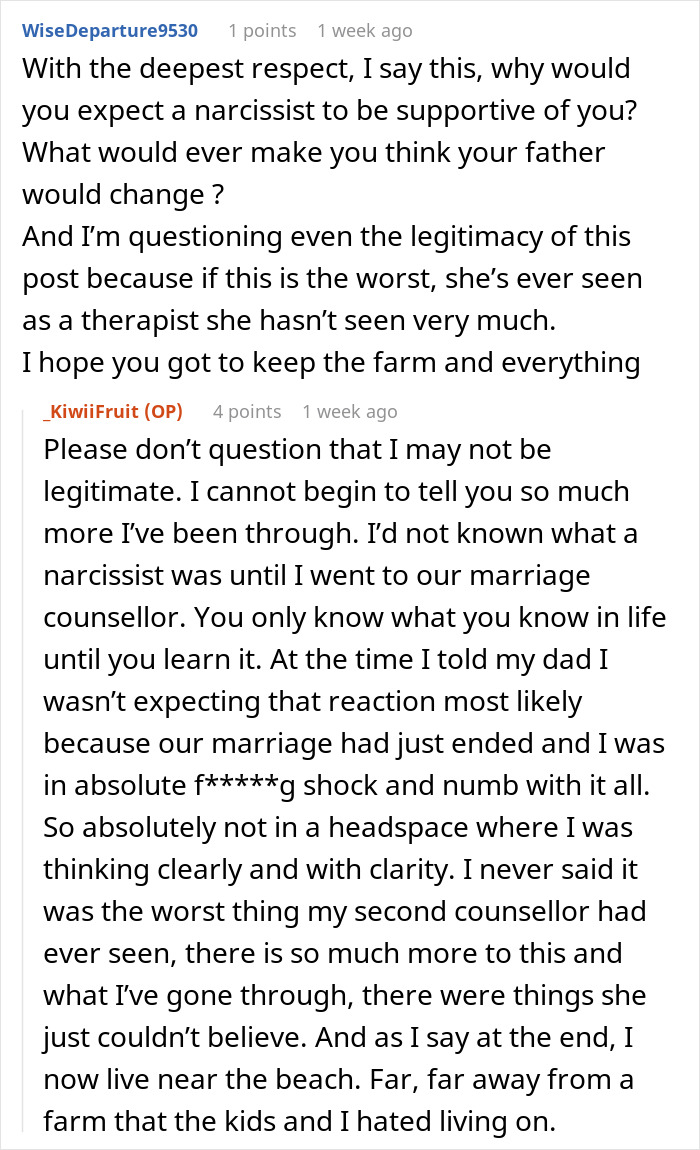


Readers agreed going no contact was the right choice and wished the woman peace moving forward






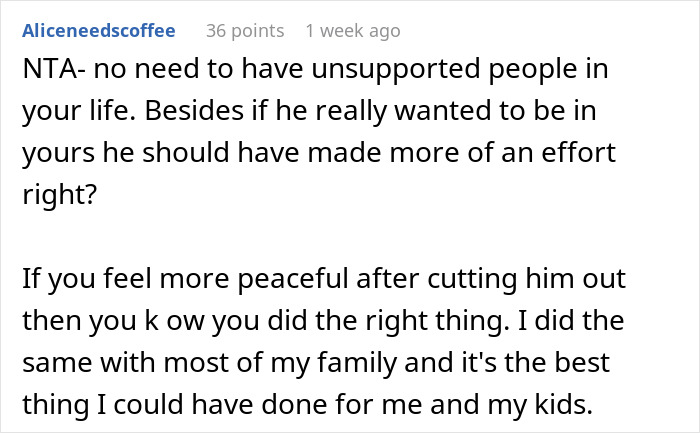





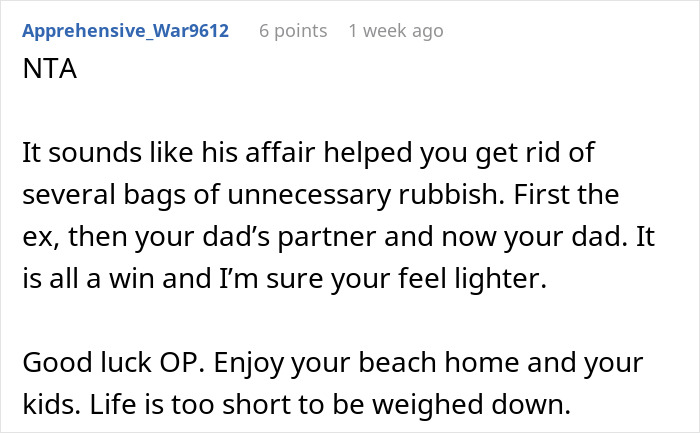



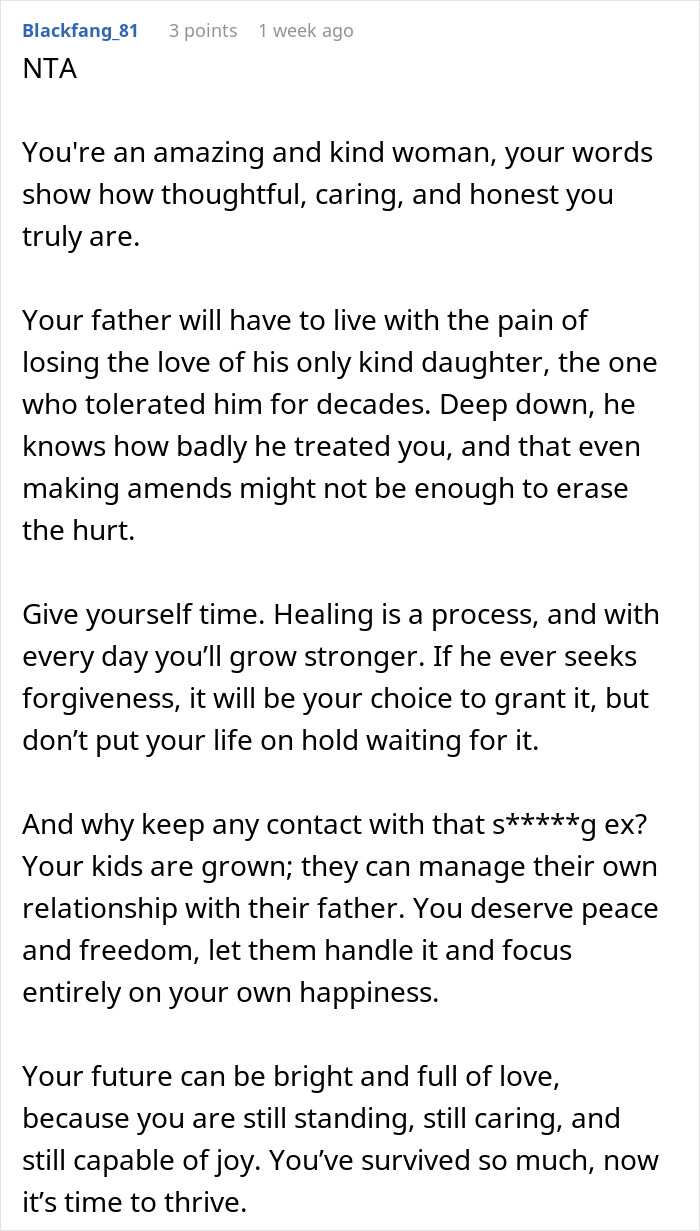
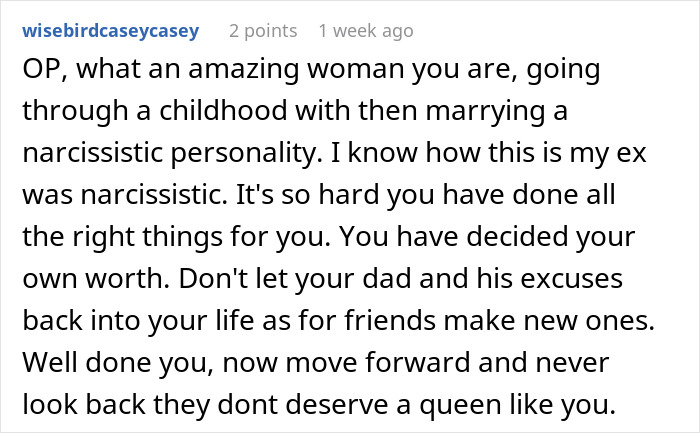


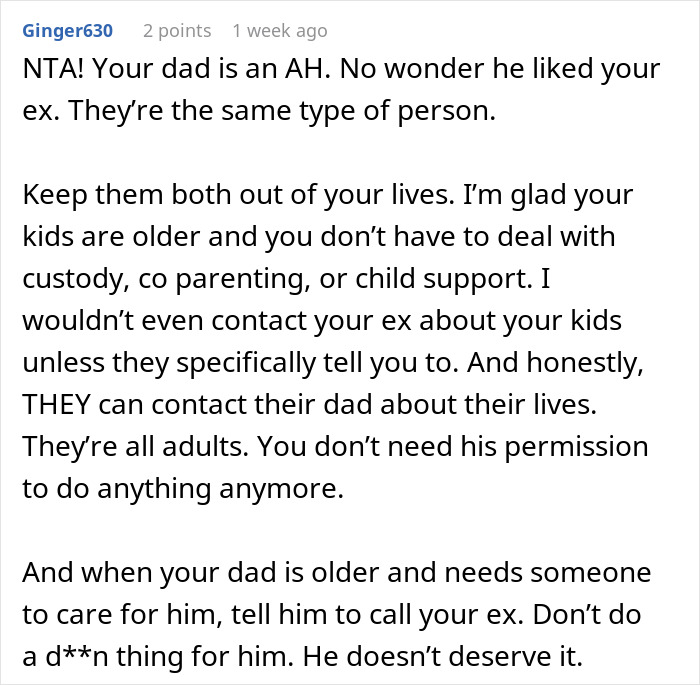


 Follow Us
Follow Us




